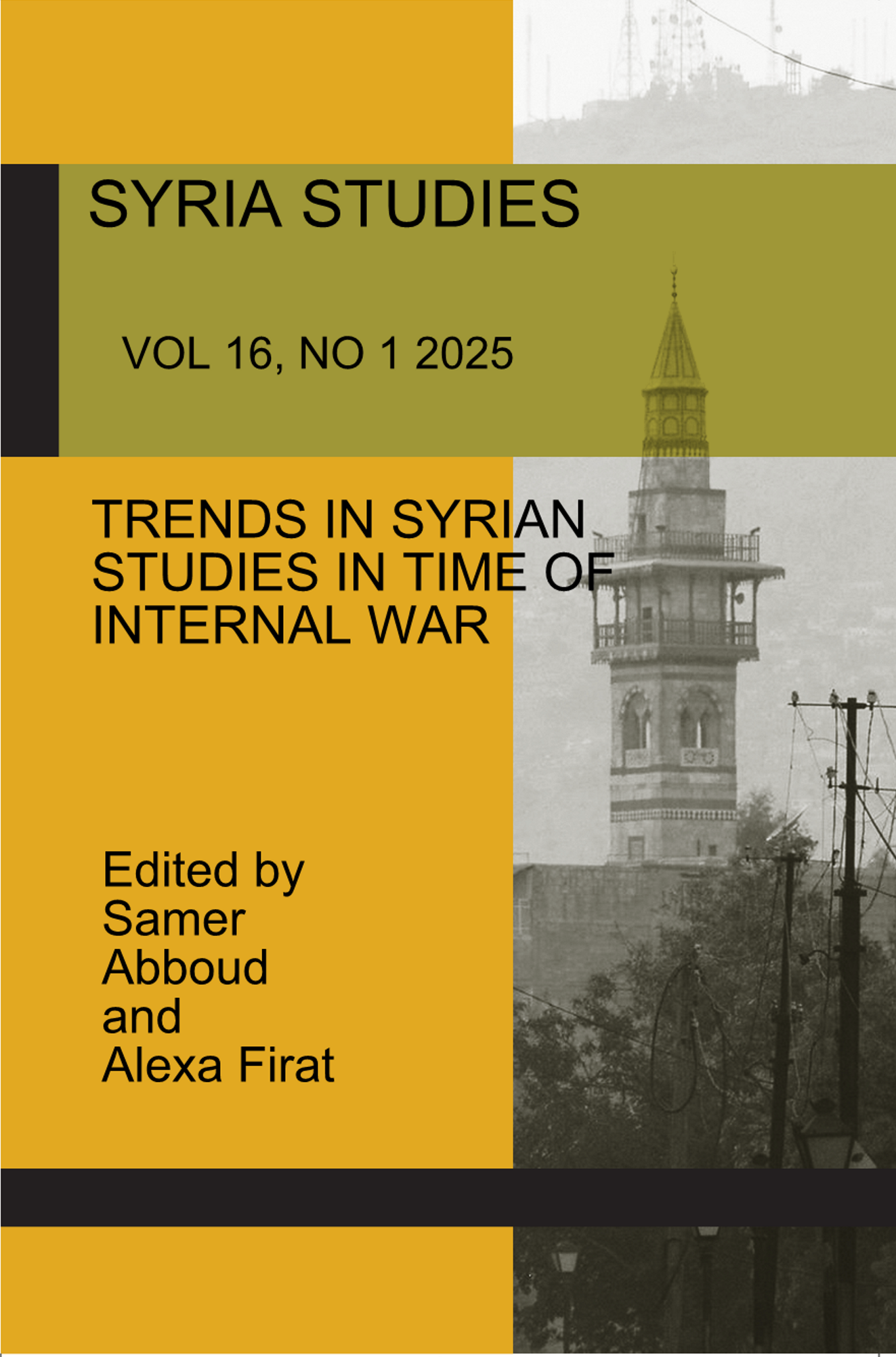Conflict Absorption and the Paradox of State Power in Syria
Main Article Content
Abstract
The study of post-colonial Syrian statehood has been interested in the relational power of institutions and varied social forces in shaping state power. In this paper, I ask how the conflict represents a distinct period of state formation in which state power was oriented around conflict management. I make two interrelated arguments that address this question. First, the normalization and bureaucratization of the logic of war reveal patterns of conflict absorption that orient state power around protracted conflict and the punishment of state enemies. Conflict absorption created the conditions for the recruitment of new elite networks, reconfigurations of local power centers, and the institutionalization of enmity against state enemies. Second, the tension between regime claims of victory and Syria’s continued territorial fragmentation highlight the paradox of state power. The regime was simultaneously strong enough to control most of Syria’s territory but too weak to reincorporate larger areas that remained outside of its control. The regime’s collapse in December 2024 reveals both the limits of conflict management strategies and the myriad challenges future political authorities have in reconstituting state capacity.
Article Details

This work is licensed under a Creative Commons Attribution 4.0 International License.
Authors who publish with this journal agree to the following terms:- Authors retain copyright and grant the journal right of first publication with the work simultaneously licensed under a Creative Commons Attribution License that allows others to share the work with an acknowledgement of the work's authorship and initial publication in this journal.
- Authors are able to enter into separate, additional contractual arrangements for the non-exclusive distribution of the journal's published version of the work (e.g., post it to an institutional repository or publish it in a book), with an acknowledgement of its initial publication in this journal.
- Authors are permitted and encouraged to post their work online (e.g., in institutional repositories or on their website) prior to and during the submission process, as it can lead to productive exchanges, as well as earlier and greater citation of published work (See The Effect of Open Access).
